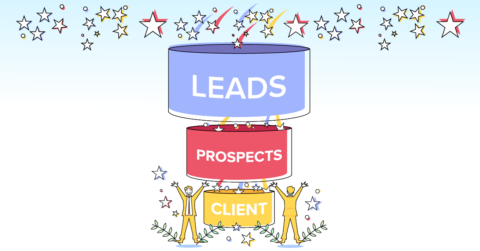
ESG At Nonprofits: What It Is + 5 Tips
12/21/23
Digital donation
ESG, which stands for Environmental, Social, and Governance, is increasingly important in the world of nonprofit organizations. Not only are nonprofits increasingly shouldering more responsibility for ethical prioritization, but people want to see it, too.
Today we talk about what exactly ESG is and why it’s so important. We also give you five tips. These actionable tips show you how to implement more ESG considerations at your own nonprofit.
Let’s get started!
What Is ESG?
ESG is a way of thinking that allows nonprofits to consider socially responsible practices in their everyday actions. ESG isn’t just about empty promises, but rather a way of doing things that has an outsized impact on the world surrounding a nonprofit.
Depending on which part of the acronym you focus on, the implications for organizations can be quite varied. Let’s cover each part of ESG in turn:
- E / Environmental: This includes every aspect of the environment and how an organization positively or negatively impacts it. Most importantly, this involves an organization’s total carbon footprint and whether or not they implement certain eco-friendly practices. Crucially, it’s also cause to consider whether a nonprofit partners with organizations that are also eco-friendly.
- S / Social: If anything, “social” can be expanded to “social responsibility.” This involves everything from the communities that a nonprofit serves, to the diversity that they strive for. “Social” can entail quite a few things, and will be shaped by the mission of any individual nonprofit.
- G / Governance: While the most vague, “governance” is perhaps the most important of the three. This is essentially the way that a nonprofit goes about achieving its goals. Do they have meticulous reporting? Are they transparent in everything that they do? Do they have ethical goals, and most importantly, do they consistently strive towards them?
Why Is ESG Important?
As for why exactly ESG is important? Well, an organization that lets environmental, social, and governance become a daily working consideration is more likely to act in an ethical way. From taking care of the environment, to treating people fairly, ESG creates a game plan by which an organization can act ethically.
This has huge implications for everything it does in the future. These days, people don’t just want a nonprofit to have an impact – they want the impact to be as sustainable as possible. An organization aligned with ESG values, for example, will think twice before enacting a policy that has a net negative environmental impact.
Interested in implementing more ESG into your own brand? Read on for actionable tips on how your organization can act with ESG in mind.
ESG At Nonprofits: 5 Tips
1) Integrate ESG Into Strategic Planning
What are your organization’s main goals? What do you want to achieve in the coming year? Which goals did you fall short on in 2023, and how can you make sure that you don’t in 2024? These are all questions that are great areas for ESG planning. This might involve setting goals for sustainability, planning to reduce your overall environmental impact, or implementing practices with high ethical standards.
End-of-year planning is also a great time to consider these questions. What are the values you want your organization to live by, and how can you make that a reality?
2) Transparent Reporting
Just because you’re planning to implement more ESG goals into your year, doesn’t necessarily mean that you will. This is where reporting can be useful. The fact is, if you want to be successful when it comes to ESG, your nonprofit must establish a system for tracking (and quantifying) EG metrics.
The first thing to determine is what you will measure. What are the main key performance indicators (KPIs) that you need to measure. What, when measured, can you consider a “job well done” for ESG? Once you start measuring this, make sure you share the results with your team. Only when everybody is on the same page can you make meaningful and consistent progress towards ESG.
3) Employee Education And Engagement
It all starts with your own people. Remember: none of this is a top-down initiative. Instead, it is a collective responsibility that everybody is responsible for. Organizations that are serious about this need to invest in comprehensive employee education programs. This ensures that each staff member understands why ESG is important and how their role contributes.
Beyond understanding this, actual engagement is crucial. Encourage your employees to propose and actively participate in ESG initiatives. This leads to a higher sense of ownership and shared values. The result? A team that collectively makes progress on its ESG goals together.
4) Partner With Like-minded Organizations
Never go it alone. If you are serious about ESG, and want to make it an integral part of your goals throughout the year, it’s important that you work with others. That said, it’s important that you work with the right organizations.
First, think about what you are going to do. Do you want to run social media campaigns with another organization? Perhaps you’ll start diving into the world of influencer marketing? Regardless of what you do, it’s essential that you work with like-minded organizations.
5) Regular ESG Audits
ESG integration is an evolving process. It’s not enough to set a goal and then leave it. Rather, like transparent reporting, you need to make sure you are constantly monitoring it.
Regular audits allow nonprofits to assess their ESG performance in a comprehensive way. The insight they give you can lead to a better understanding of possible areas of improvement and general refinements to your overall strategy. This leads to a culture of continuous improvement and makes ESG initiatives a more normalized part of your nonprofit throughout the year.
…
Are you an enterprise, nonprofit or small business looking for help on your website? Give us a shout! We provide a free consultation. Email us at info@lughstudio.com or call us at (718) 855-1919!









